Discover Parenting Without Power Struggles
Parenting Without Power Struggles

Parenting Without Power Struggles
Author: Susan Stiffelman
Subscribed: 1,952Played: 32,088Subscribe
Share
© Copyright 2019 Susan Stiffelman, MFT
Description
Susan Stiffelman is a family therapist, parent coach, and one of the country's premiere parenting experts, and the author of Parenting Without Power Struggles and Parenting With Presence (an Eckhart Tolle edition.)
Susan's podcasts feature conversations with guests including Dr. Dan Siegel, Janet Lansbury, Dr. Kristen Neff, Dr. Mona Delahooke, Glennon Doyle, Dr. Jane Goodall, Jack Kornfield, Martha Beck, and many others.
Susan's podcasts feature conversations with guests including Dr. Dan Siegel, Janet Lansbury, Dr. Kristen Neff, Dr. Mona Delahooke, Glennon Doyle, Dr. Jane Goodall, Jack Kornfield, Martha Beck, and many others.
162 Episodes
Reverse
In this episode, Susan speaks with Dr. Judith Orloff about the gifts of sensitivity, offering encouragment and insight for parents of these tender-hearted, deep feeling children and teens.
In this episode, Susan explores one of the most powerful truths about parenting: that the most important thing we can do for our children is to work on ourselves. Drawing inspiration from Dr. Gabor Maté’s insight and her training in Internal Family Systems (IFS), Susan explains how our emotional state, unresolved wounds, and inner “parts” profoundly shape our children’s sense of safety and connection. She shares simple, compassionate ways to notice when we’re triggered, name the parts that get activated, and return to our calm, wise “Captain” self. https://go.susanstiffelman.com/parenting-as-healing-podcast
In this episode, Susan emphasizes the importance of emotional connection between parents and children, even amid the busyness of daily life. She reassures parents that deep closeness doesn’t require elaborate outings or large chunks of time, but can be nurtured through small, intentional practices like sharing a genuine smile, creating five-minute rituals, repairing after moments of tension, and entering a child’s world by showing interest in what they love. She encourages cultivating these small habits of connection to not only strengthens a child’s sense of being seen and valued, but also to nourish parents, filling both with greater closeness, joy, and resilience. https://pages.susanstiffelman.com/nurturing-closeness-podcast
In this episode, Susan explores the important difference between threats and boundaries in parenting. Susan illustrates the contrast between threats and boundaries using real-life examples—such as homework, chores, and screen time. She highlights how shifting from reactive threats to steady boundaries strengthens trust and cooperation while giving children the security and clarity they need. https://pages.susanstiffelman.com/threats-boundaries-podcast
In this episode, Susan offers compassionate guidance for navigating the emotional complexities of parenting after divorce. Susan explores the importance of emotional presence, not perfection, as the foundation for helping children feel secure during and after separation. Susan encouraging parents to model emotional safety, welcome messy feelings, and repair ruptures in connection. She validates the exhaustion many solo or co-parents feel, offers insights into children’s developmental responses to divorce, and reminds listeners that showing up with steady, imperfect love makes a lasting difference. https://pages.susanstiffelman.com/divorce-podcast-episode
In this episode, Susan reflects on Derek Thompson’s article The Death of Partying in the USA to explore a troubling trend: the steady decline of in-person socializing, especially among young people. Susan highlights the mental health risks this poses—not just for adults, but for children growing up in screen-based, solitary environments. Susan gently encourages families to prioritize connection in an increasingly disconnected world. https://pages.susanstiffelman.com/kids-thrive-connection-podcast
In this episode, Susan explores the unique needs and strengths of highly sensitive children. Susan explains that high sensitivity is a temperament trait—not a flaw—characterized by deep empathy, acute perception, and strong emotional responses. Acknowledging that parenting a sensitive child can be both exhausting and rewarding, Susan emphasizes the importance of providing a calm, steady presence to help these children feel safe and supported. https://pages.susanstiffelman.com/sensitive-kids-podcast
In this episode, encourages parents to shift from reactive discipline to compassionate problem-solving by asking a simple but powerful question: “Why does this behavior make sense?” Susan illustrates how understanding the root causes of a child’s actions can lead to more effective, connection-based responses. https://pages.susanstiffelman.com/podcasts-why-behavior-makes-sense
In this episode, Susan explors the roots of parental reactivity—those moments when we snap, yell, or shut down—and why they have less to do with our children’s behavior and more to do with our own unmet needs, past experiences, and nervous system responses. Recognizing our triggers with compassion can open the door to healing, not just for ourselves but for our relationships with our kids. Susan invites listeners to shift from shame to self-awareness—and take the first steps toward more connected, mindful parenting. https://pages.susanstiffelman.com/keeping-your-cool-podcast-2
In this episode, Susan tackles a common parenting challenge: how to stay calm in the heat of conflict. Drawing on attachment theory, neuroscience, and mindfulness, Susan introduces two powerful tools—shrinking the moment and using a mental anchor word—to help parents regulate their own emotions and respond more constructively when their children resist limits. She invites listeners to a free webinar for more in-depth strategies on keeping your cool during parenting storms. https://pages.susanstiffelman.com/keeping-cool-podcast
In this insightful episode, Susan is joined by Tracy Gillett of Raised Good for an honest conversation about parenting through meltdowns—those intense emotional storms that can shake both children and caregivers. They explore what’s really happening in a child’s brain during a meltdown, why these moments are developmentally normal, and how parents can show up with compassion rather than control. They also discuss the power of repair, the myth of perfect parenting, and how to trust your instincts even when they run counter to mainstream advice. https://pages.susanstiffelman.com/tracy-gillett-podcast
In this episode, I explore one of the most challenging aspects of parenting: children’s emotional meltdowns. But meltdowns are not signs of bad behavior—they're nervous system overloads signaling distress. I unpack the neuroscience behind these moments, the difference between tantrums and meltdowns, and why staying calm is more effective than trying to reason. You'll learn why emotional expression, especially crying, is essential for healthy development, and how your own regulation is key to supporting your child. https://pages.susanstiffelman.com/meltdowns-podcast
In this episode, Susan and Lenore Skenazy discussed the importance of childhood independence, free play, and responsibility, emphasizing the need to reduce anxiety in children by allowing them to take risks and make their own decisions. They explored the impact of cultural messaging and media on parenting practices, suggesting ways to promote resilience and social skills through programs like free play and after-school activities. Their conversation also touched on the challenges of screen time, the benefits of self-care for parents, and the value of allowing children to contribute to family life and experience real-world interactions. https://pages.susanstiffelman.com/lenore-skenazy-podcast
In this episode, Susan welcomes Dr. Delaney Ruston, a physician, filmmaker, and creator of the Screenagers documentary series. In this powerful conversation, they talk about how to parent with compassion and confidence in the digital age. Delaney emphasizes the importance of the "safety first" approach: creating a home environment where children feel safe disclosing difficult online experiences without fear of punishment. Susan and Delaney stress the power of presence, connection, and emotional safety as the bedrock of digital-era parenting. https://pages.susanstiffelman.com/delaney-ruston-podcast
Anxiety in children isn’t something to eliminate—it’s something to understand. In this episode, we explore how anxiety shows up in the body and why it’s actually a signal, not a flaw. You’ll walk away with a new lens on your child’s anxious moments—and a sense of what real support can look like. https://pages.susanstiffelman.com/anxiety-podcast-2
In this episode, Susan explores the rising issue of anxiety in children and teens, emphasizing that anxiety is not a flaw but a signal that something feels unsafe. She discusses contributing factors like social media, academic pressure, and global uncertainty, and she encourages parents to co-regulate using tools like movement and breath work. She reassures parents that their presence and understanding matter more than "fixing" the anxiety itself. https://pages.susanstiffelman.com/anxiety-maggie-podcast
In this episode, Susan explores the importance of helping kids tune into their own wisdom and instincts, so they can think for themselves with confidence. Susan shares practical strategies for fostering self-trust, including asking thoughtful questions and helping kids recognize how their body and emotions respond to different choices. https://pages.susanstiffelman.com/inner-wisdom-podcast
In this episode, Susan welcomes licensed clinical mental health counselor and certified Internal Family Systems (IFS) therapist, Tammy Sollenberger, to explore how IFS can help parents navigate their emotional triggers and build deeper connections with their children. Tammy illustrates how understanding and embracing different parts of ourselves can transform reactive parenting into more mindful and compassionate interactions. By integrating IFS principles, parents can step into a more centered, calm, and connected role with their children. https://pages.susanstiffelman.com/tammy-sollenberger-podcast
In this episode, Susan explores why kids lie and how parents can foster honesty with compassion. She explains that lying is often a normal part of child development, driven by self-protection, avoiding consequences, or imaginative storytelling. Susan emphasizes the importance of modeling honesty and guiding children toward making amends, helping them develop integrity and trust in their relationships. https://pages.susanstiffelman.com/why-kids-lie-podcast
In this episode, Susan challenges the traditional view of ADHD, reframing it as different brain wiring rather than a deficit. She explores how ADHD brains thrive on creativity and spontaneity while struggling with executive function and emotional regulation. She offers practical strategies to help ADHD children succeed and emphasizes the importance of co-regulation to allow parents to empower their ADHD children to thrive. https://pages.susanstiffelman.com/flip-the-script-adhd-podcast




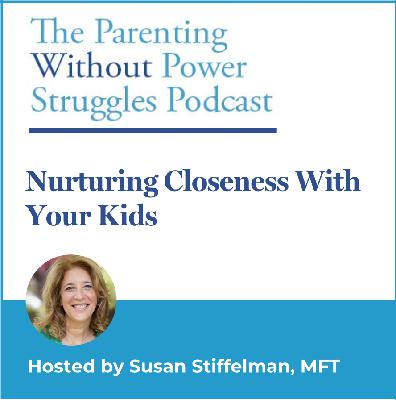
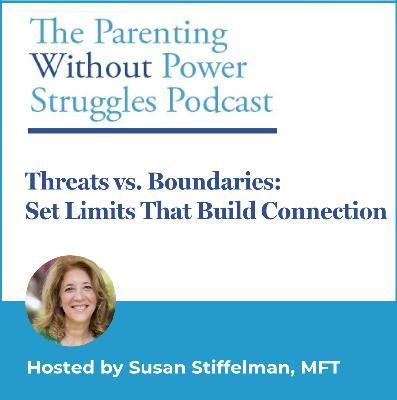
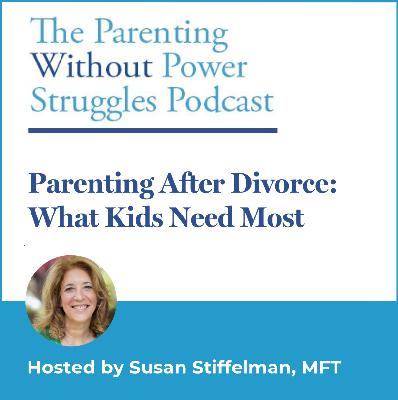
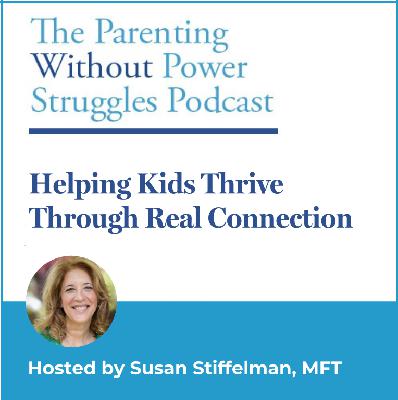
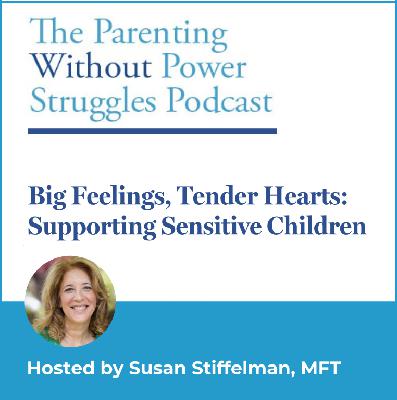
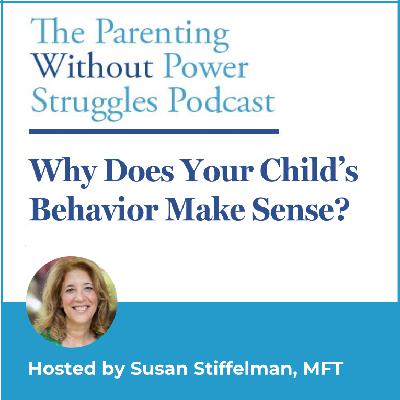
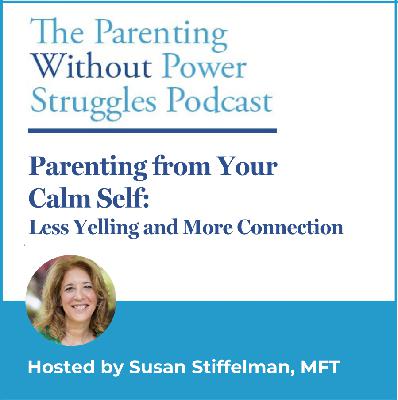
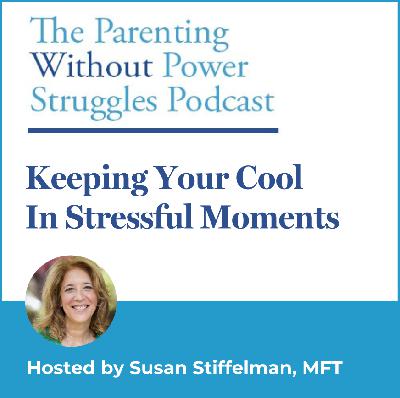
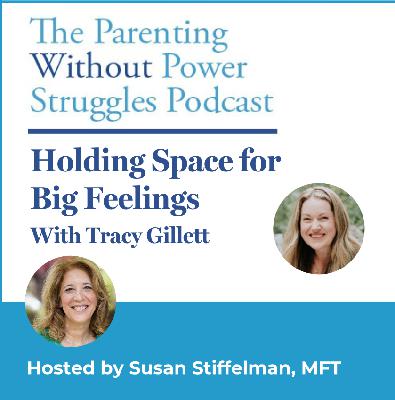
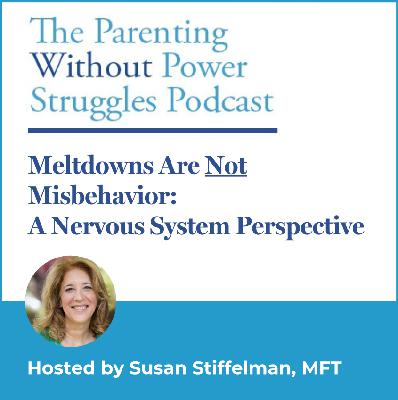
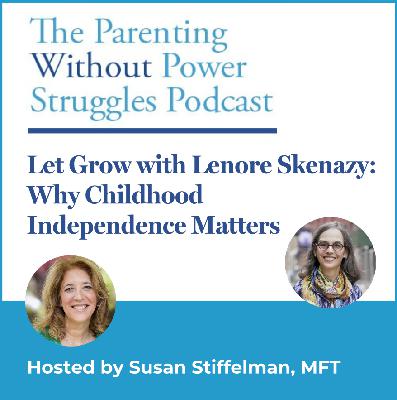
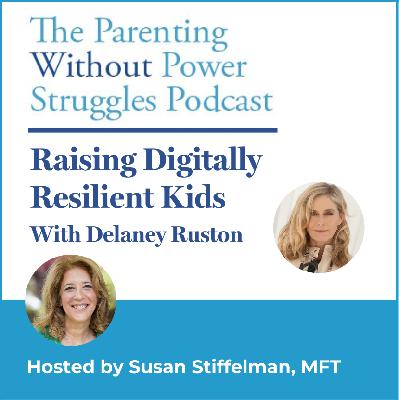
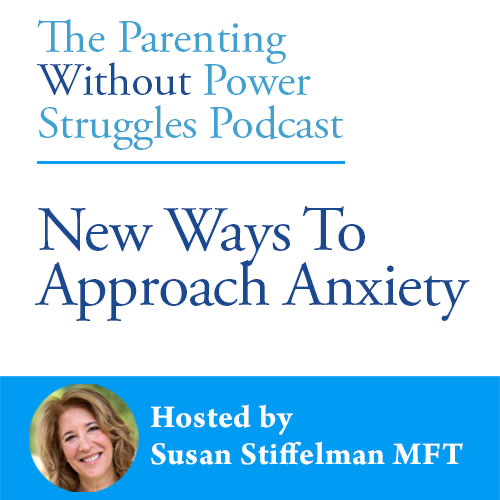
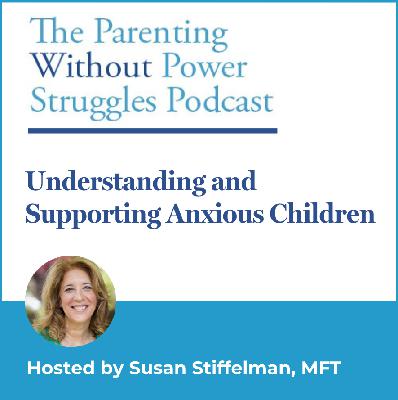
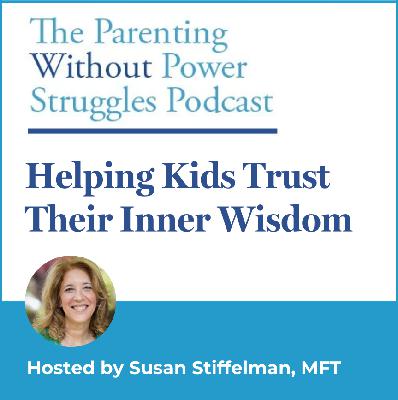
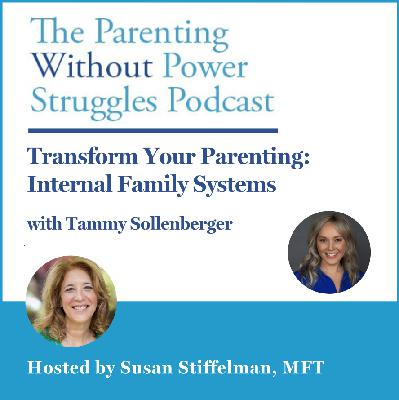
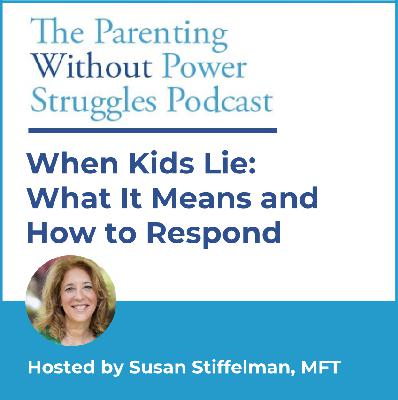
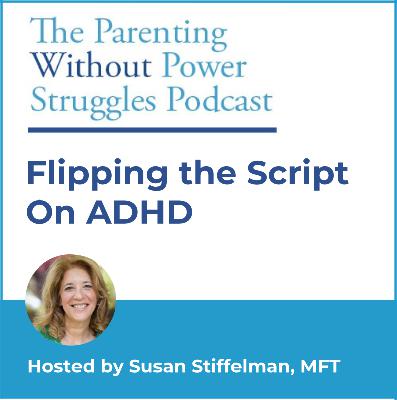



the tv issue is something i work on with my child thanks for some tips to try
this has helo me alot with my stepson who is 11 n stuck to electronics